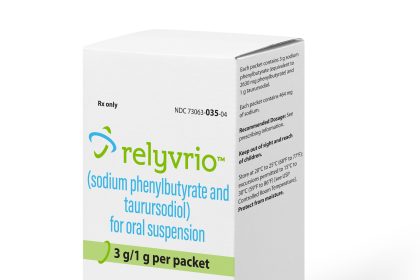Health Summit Panel Debates Drug Pricing Proposals

Policymakers and representatives of the pharmaceutical industry debated the cost of prescription drugs and the myriad of proposals on Capitol Hill to bring those prices down at last week’s Milken Institute Future of Health Summit.
Amitabh Chandra, a health care economist at the John F. Kennedy School of Government at Harvard University, said that one reason there are so many proposals surrounding drug pricing is that policymakers are not sure what problems they are trying to fix.
As an example, he pointed to the case of Aduhelm, the recently approved Alzheimer’s medication.
“The manufacturer is going to charge about $56,000,” Chandra said. “[So] are we trying to solve why the manufacturer is charging $56,000, and how we can lower that price, or are we trying to solve a different problem — that the patients who will eventually use this drug still have to pay $11,000 for it in the form of out-of-pocket spending [after insurance]?” Chandra said.
H.R.3, the Lower Drug Costs Now Act, would give the Department of Health and Human Services the power to directly negotiate prices for certain drugs with drug companies, and aims to lower drug prices negotiated by Medicare available to Americans with private insurance, and not only Medicare beneficiaries.
The bill would also establish a $2,000 out-of-pocket limit on prescription drug costs for Medicare beneficiaries, and reverse years of price hikes above inflation across thousands of drugs in Medicare.
In April, the ranking members of the House Energy and Commerce, Ways and Means and Education and Labor committees circulated a letter among their colleagues urging them to reject H.R. 3 and instead support H.R.19, a bill reintroduced in this Congress that had solid bipartisan support when it was introduced in the last Congress.
As described in their letter, H.R. 19, the Lower Costs, More Cures Act, would provide the first-ever out-of-pocket cap for seniors in the Medicare Part D program; cap the cost of insulin for seniors in the Medicare Part D program; empower patients with more drug price transparency and remove uncertainty at the pharmacy counter; and cut the cost of cancer treatment and other drug administration for Medicare beneficiaries by as much as half.
Picking up where Chandra left off, Geoffrey Porges, head of therapeutics research at investment bank SVB Leerink, said Medicare could be facing $50 billion a year in spending on Aduhelm, a prospect that is making both capital markets and investors “very nervous.”
The Centers for Medicare and Medicaid Services, a federal agency within the United States Department of Health and Human Services, manages the Medicare Part D program.
A spokesperson for the agency said market competition provides an incentive for plans to offer drug coverage at lower premiums.
“While the law does not permit CMS to interfere with plan sponsor negotiations with manufacturers and drug pricing practices, CMS keeps patient access to medications as a guiding principle when establishing and implementing Part D policies,” a spokesperson for the agency said.
Lori Reilly, chief operating officer of PhRMA, a trade group representing the pharmaceutical industry, said the industry’s hope is that whatever legislation is eventually settled on, it’ll be designed to help ease the burden on patients, whether it relates to out-of-pocket deductibles or copays for their medicine.
“We recognize as an industry we will be asked to pay for much of that, and we are happy to be a partner in doing so, but our hope is the costs that are taken out of our industry go into lowering the patient out-of-pocket burden,” Reilly said.
She then went on to take on the common comparisons between what Americans pay for their prescription drugs and what the citizens of other countries pay in theirs.
Reilly noted that even in highly developed European countries, access to new drugs is often a problem, at least in part because of the drug pricing regimes in those countries.
“They face an 18-month delay on average relative to patients in the U.S., and once those medicines are approved their ability to access them is often significantly less than those patients in the U.S.,” she said.
Like the ranking members of the House mentioned earlier, PhRMA is no fan of H.R. 3, which the association presents will “upend a collaborative ecosystem that’s been pivotal in our response to the pandemic.”
At the same time, the association agrees with Chandra that H.R. 3 will stifle innovation and lead to fewer new cures and treatments.
It bases its position on a congressional budget office report from December 2019, showing that the biopharma industry invested $102 billion in research and development in 2018, 100% of which was focused on drug development, while only 8% of the entirety of the $35.4 billion National Institutes of Health budget was focused directly on research related to drug development.
In response, it has released a series of recommendations intended to lower out-of-pocket costs for medicines while protecting patient access and future biomedical innovation.
These include modernizing Medicare Part D by capping annual out-of-pocket costs, lowering cost sharing and making it more predictable, sharing savings at the pharmacy counter, and reducing costs in Medicare Part B for advanced therapies and complex biologics.
“This reform would achieve savings for the government and beneficiaries, and savings for 10% of seniors and people with disabilities,” the association has said.
Other measures by PhRMA to reduce drug pricing include making cost sharing more predictable, having insurance companies be transparent about coverage for medicines from day one, and improving competition in the market by ensuring that incentives are based on the service provided, and not the cost of the medicine.
“Patient affordability is the number one thing that needs to be addressed, both in the Part D market and commercial market,” Reilly said.
























